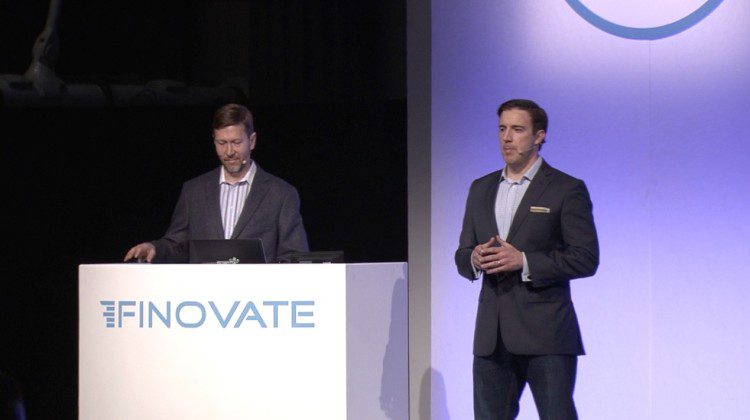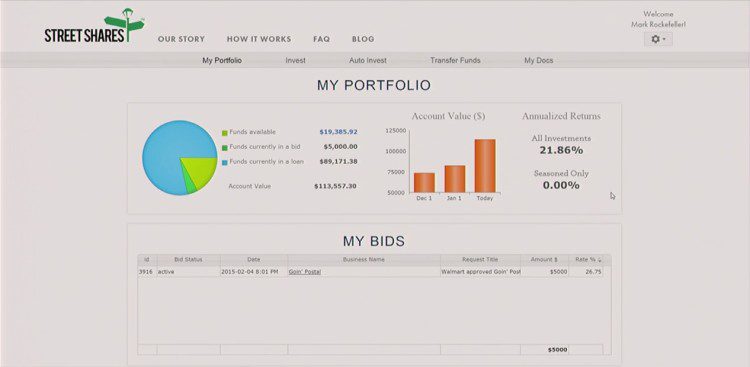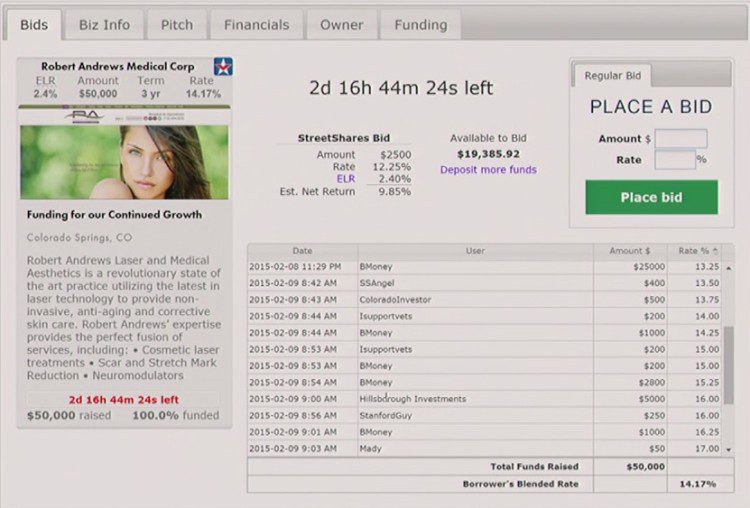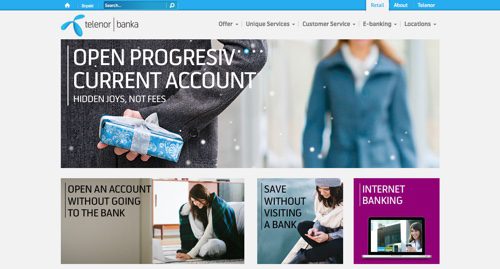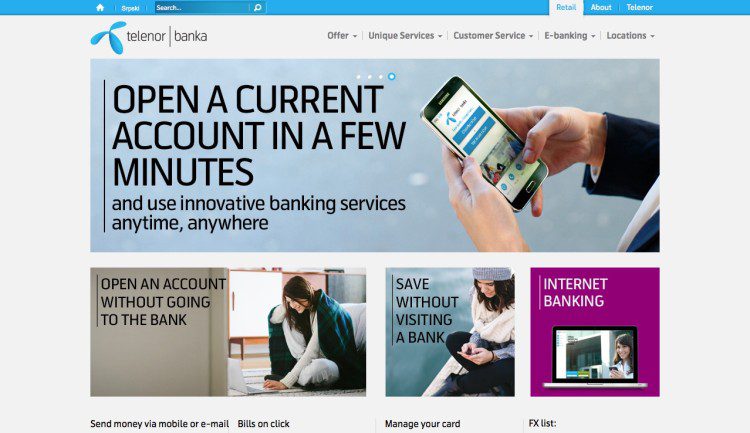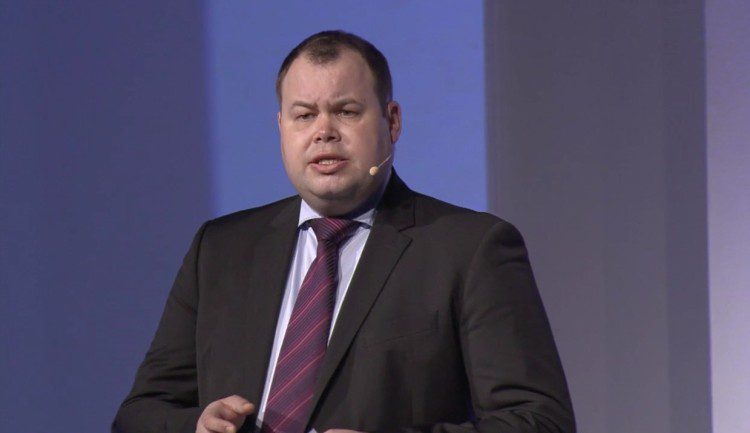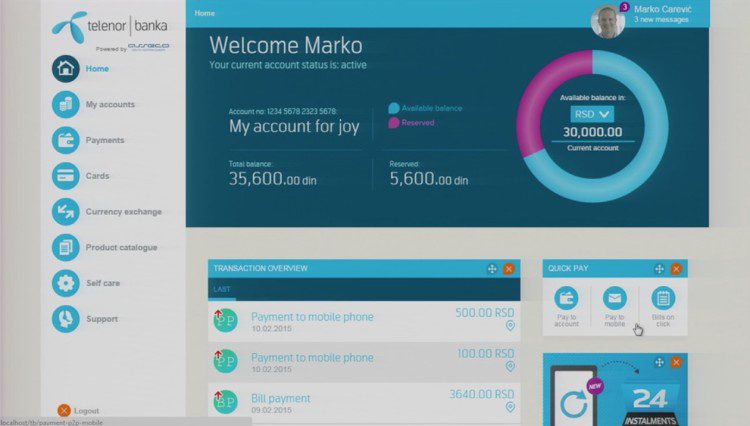

FinovateSpring 2015 is just over a month away. Our annual spring conference returns to San Jose, 12/13 May for two days of live demos of the latest in fintech innovation.
Today we introduce you to another seven companies that will be on stage presenting their technical solutions to some of the financial community’s biggest challenges—from improving engagement through mobile and social channels to improving security and reducing friction for business and individual consumers.
Be sure to check out Part 1 of our Sneak Peek series featuring Alpha Payments Cloud, CUneXus, DRAFT, FundAmerica, SayPay, StockViews, and TrueAccord, as well.
Tickets are going fast. Register today and save your spot at our second Finovate show in San Jose.
 Bento for Business provides financial solutions that fit small businesses, combining the security of a bank with the ease and convenience of a modern technology company.
Bento for Business provides financial solutions that fit small businesses, combining the security of a bank with the ease and convenience of a modern technology company.
Features:
- The Bento Prepaid Commercial MasterCard provides small business owners with controls, such as where, when, and how much their employees can spend without putting their owners’ personal credit at risk.
Why it’s great
Bento’s solutions are designed to save owners time and help eliminate expense ‘leaks,’ a type of fraud that can cost them up to 5% of their revenue each year.
Presenters
 Farhan Ahmad, Co-founder and CEO
Farhan Ahmad, Co-founder and CEO
Ahmad was formerly managing director at Barclays and the global head of emerging payments and prepaid for Discover Financial Services. He has held leadership roles at JPMorgan Chase, Bank One and First USA.
LinkedIn
 Sean Anderson, Co-founder and Chief Product Officer
Sean Anderson, Co-founder and Chief Product Officer
Anderson was formerly senior director of emerging products at Blackhawk Network, where he built and launched their open API platform, launched an offers platform, and developed a prepaid processing platform.
LinkedIn
 DoubleNet Pay automatically pays bills and funds savings goals directly from an employee’s paycheck, eliminating guesswork, late fees, and budgeting hassles.
DoubleNet Pay automatically pays bills and funds savings goals directly from an employee’s paycheck, eliminating guesswork, late fees, and budgeting hassles.
Features:
- Seamless integration with major payroll processors
- Allows an employee to simply snap a picture of a current bill stub
- Employees can easily create, fund, and redeem custom savings goals
Why it’s great
Bills are paid and savings funded automatically on payday, just like payroll taxes.
Presenters
 Brian Cosgray, Founder and CEO
Brian Cosgray, Founder and CEO
Cosgray has spent his entire career in financial services. Working with customers across the economic spectrum convinced him of the need to simplify and automate how people pay bills and save money.
LinkedIn
 Cody Laird, Co-founder and COO
Cody Laird, Co-founder and COO
Laird is a financial technology veteran. Prior to co-founding DoubleNet Pay, Cody spent 21 years with SunTrust Bank helping to design and build their current retail banking platform.
LinkedIn
 Bret Levy, Co-founder and CTO
Bret Levy, Co-founder and CTO
Levy has been responsible for the architecture of many innovative, highly scalable software systems, most notably the Scientific Games system that powers most state lotteries.
LinkedIn
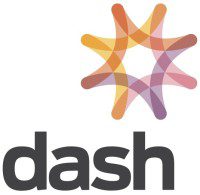 Karmic Labs provides API-based payment and SaaS solutions for card issuance (initially commercial market). Karmic offers Dash, FIS, and also uses Karmic’s APIs to offer its own product to FIs.
Karmic Labs provides API-based payment and SaaS solutions for card issuance (initially commercial market). Karmic offers Dash, FIS, and also uses Karmic’s APIs to offer its own product to FIs.
Features:
- Robust API infrastructure for commercial card issuance
- Payment virtualization layer
- Creates a marketplace of innovative financial technology and SaaS solutions for the commercial market.
Why it’s great
Karmic labs offers API-based payment and SaaS solutions, of which its first product is Dash; the APIs are also used by FIS, a global leader in banking and payments technology, for its own product to FIs.
Presenters
 Ryan Weidenmiller, CEO
Ryan Weidenmiller, CEO
Weidenmiller is an entrepreneur who built a top-ranked venture capital fund in China, now working on Karmic Labs’.
LinkedIn
 Chris Agerton, CTO
Chris Agerton, CTO
Agerton was previously at Google, and was a founding engineer at Pinterest, responsible for developing high-availability architecture at Scribd.
LinkedIn
 Troy Land, Group Executive of Emerging Commerce, FIS
Troy Land, Group Executive of Emerging Commerce, FIS
Land is the group executive of emerging commerce at FIS within the retail payments division; he holds expertise in business and product development.
LinkedIn
 SizeUp: SizeUp FI (financial insitutions) is big-data for small businesses. It enables FIs to provide their customers with business intelligence through the FI’s own website.
SizeUp: SizeUp FI (financial insitutions) is big-data for small businesses. It enables FIs to provide their customers with business intelligence through the FI’s own website.
Features of SizeUp FI:
- Enable your FI’s customers to :
- Compare their business performance with that of industry competitors
- Find customers, suppliers, and competitors
- Discover best locations to advertise
Why it’s great
SizeUp FI delivers a deeper business-customer partnership through success assistance; “sticky” client engagement; FI services awareness; and big-data insights that SMEs couldn’t previously access.
Presenters
 Anatalio Ubalde, CEO and Co-founder
Anatalio Ubalde, CEO and Co-founder
Ubalde is a successful entrepreneur leading Software as a Service (SaaS) ventures focused on data-driven solutions for small businesses and economic development.
LinkedIn
 Thomas Barron, VP Business Development
Thomas Barron, VP Business Development
Barron has developed corporate partnerships for 15 years from Fortunte 500 companies to 5-person startups. He previously worked at Visa developing strategic partnerships.
LinkedIn
 Stratos consolidates cards into one dynamic card, making payments secure and smart. Stratos Digital Card Issuance Platform allows cards to download instantly, digitizing physical fulfillment.
Stratos consolidates cards into one dynamic card, making payments secure and smart. Stratos Digital Card Issuance Platform allows cards to download instantly, digitizing physical fulfillment.
Features:
- Ensures virtual top of wallet, increases consumer engagement and loyalty
- Provides secure card and wallet data
- Eliminates costly physical card fulfillment
Why it’s great
Starts card working with Stratos Digital Card Issuance Platform to reinvent, not only your wallet, but also cards—just like the iPod and iTunes reinvented your CD collection.
Presenters
 Thiago Olson, Co-founder, CEO
Thiago Olson, Co-founder, CEO
Olson worked at CERN and the Department of Defense and is a leader in next generation payments. He graduated with honors in engineering and physics at Vanderbilt.
LinkedIn
 Henry Balanon, Co-founder, CTO
Henry Balanon, Co-founder, CTO
Balanon brings technical leadership and expertise to Stratos from his previous experience as co-founder of Detroit Labs, a leading mobile-app agency.
LinkedIn
 TickerTags connects trending social content to investable companies through the monitoring of 250,000+ crowdsourced Tags that have the potential to impact a company’s business.
TickerTags connects trending social content to investable companies through the monitoring of 250,000+ crowdsourced Tags that have the potential to impact a company’s business.
Features:
- Track social velocity and sentiment of products/brands driving your investment
- Create your own Tags to associate with Tickers for personalized trending notifications
- It’s free
Why it’s great
We are a community-maintained platform intent on democratizing information-flow by evolving new monitoring from view-limited tickers to social -monitored tags.
Presenters
 Chris Camillo, Co-founder, CEO
Chris Camillo, Co-founder, CEO
A pioneer in social arbitrage investing, Camillo’s audited portfolio has averaged 84% annual returns over the past 8 years.
LinkedIn
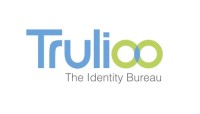 Trulioo’s bank-grade AML/KYC identity-verification product, GlobalGateway, enables businesses to perform frictionless ID verification for 3 billion people in more than 40 countries via 140 data sources.
Trulioo’s bank-grade AML/KYC identity-verification product, GlobalGateway, enables businesses to perform frictionless ID verification for 3 billion people in more than 40 countries via 140 data sources.
Features:
- Builds confidence and trust by preventing fraud and identity theft
- Saves time, money, and resources through automated online ID-checks
- Eliminates barriers to market entry
Why it’s great
Trulioo’s GlobalGateway provides advanced analytics from cyber and traditional data sources to verify identities online by powering fraud and compliance systems worldwide, increasing trust and safety.
Presenters
 Stephen Ufford, Founder, CEO
Stephen Ufford, Founder, CEO
Ufford has founded four data-focused startups over the last decade while working in the role of CEO. As a serial entrepreneur, he challenges the status quo and if it’s broken, he likes to fix it.
LinkedIn
 Anatoly Kvitnitsky, Director of Corporate Development
Anatoly Kvitnitsky, Director of Corporate Development
With solid startup and corporate experience, Kvitnitsky leads strategic partnerships and data acquisition for Trulioo.
LinkedIn




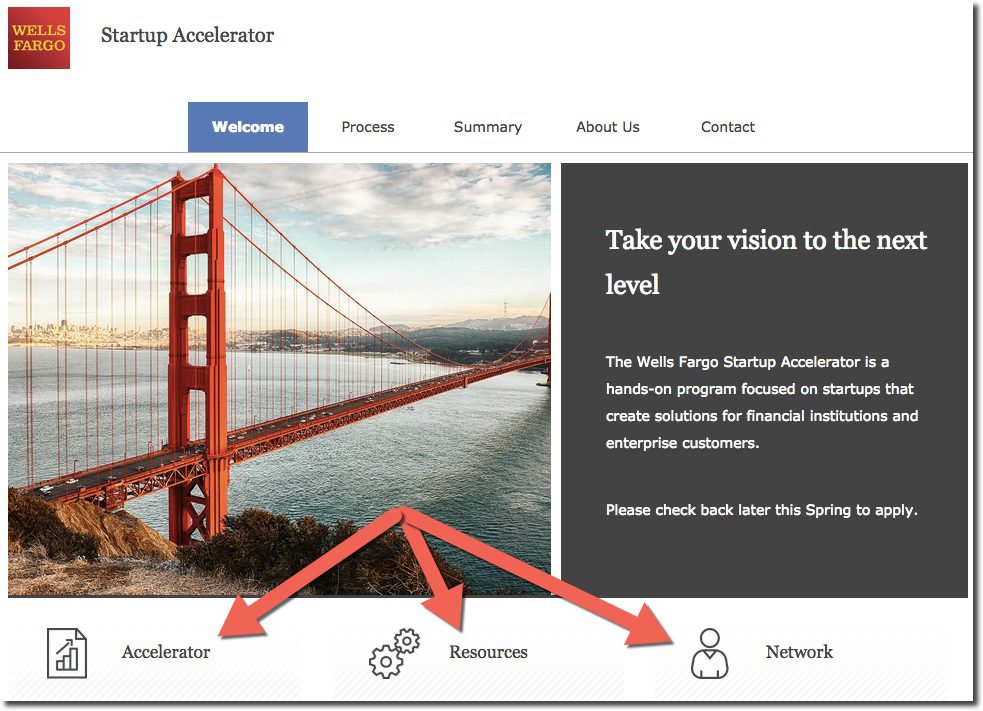














 Ryan Weidenmiller, CEO
Ryan Weidenmiller, CEO
 Troy Land, Group Executive of Emerging Commerce, FIS
Troy Land, Group Executive of Emerging Commerce, FIS












